Latest News
Poverty is a multi-dimensional and historic issue in Afghanistan: Ghani
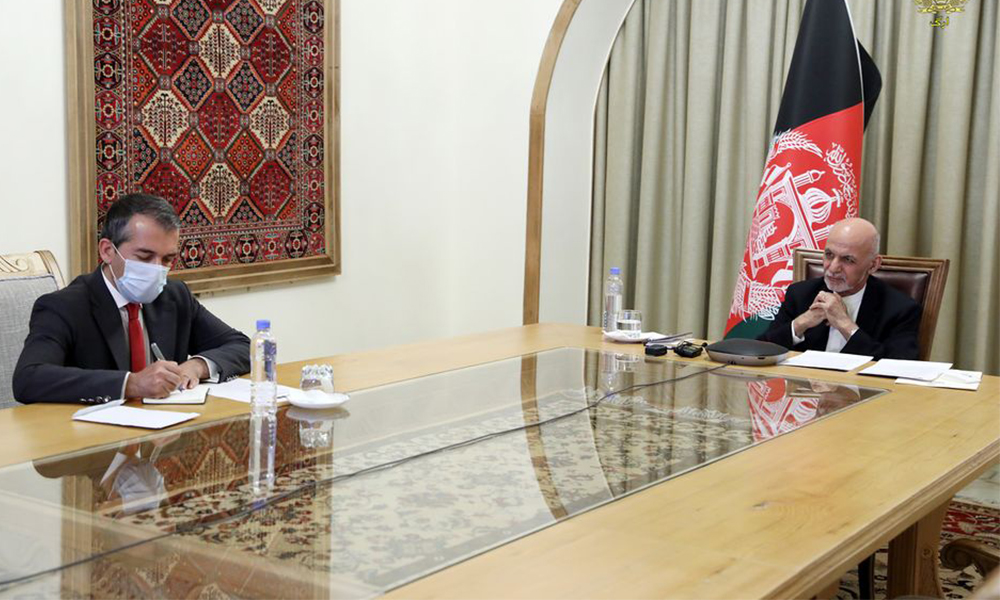
President Ghani says that the Covid-19 pandemic has plunged the world into turmoil, uncertainty, and unprecedented risk.
Addressing a side event – Poverty at the Cross Road: Using leadership and the multidimensional poverty index to build back better – on the sideline of the 75th session of United Nation General Assembly on Thursday, Ghani said that the pandemic has exposed existing vulnerabilities and shortcomings in our systems and normal modes of conduct.
“It wreaked havoc on lives and livelihoods, particularly for the poor and disadvantaged. It posed an unparalleled challenge to our scientific and technological capabilities, and an existential threat to our medical professionals who have been on the front lines of a war for which we were not prepared,” Ghani added.
“The virus arrived in Afghanistan at the end of February in Herat province, on the border with Iran. The virus peaked in June with an infection rate of 76%. As of September 23, we had recorded 1,446 deaths from the virus. Today, with the virus on the decline, the infection rate is fluctuating daily between 6% and 25%.”
Ghani stated that poverty is one of the most pervasive and complex problems the Afghan people face today and the COVID-19 pandemic” made that even worse for many people.”
He added that the most pressing issue facing people living in poverty is food insecurity.
“In February, it looked challenging because country after country was closing its borders and its economies. We were fortunate, however, to secure the full cooperation of our central Asian neighbors to keep the supply chains functioning.”
Ghani highlighted that poverty is a multi-dimensional and historic issue in Afghanistan. He said it certainly did not start with COVID-19, “so our policy response must also be multi-faceted and must also look far beyond the pandemic.”
President suggests the following priorities for responding to poverty in the country:
First, we need to reach the poor as directly as possible. The Citizen’s Charter is the vehicle of our national community development programs, including the implementation of the National Meal Program. The Citizen’s Charter program is a network of elected community councils in all 34 provinces, where 50% of council members are women.
We are determined to complete the issuance of electronic IDs to every citizen of the country so we can increase their access to mobile money. The goal is that within a year to 18 months, we will be able to reach the poor directly.
Second, we have to enhance our citizen’s assets. The key to this is increasing the productivity of land, labor, and water.
Third, we must align the goals of the market building, state-building, and nation-building. The unifying element here is investing in education, particularly girls’ education and the generation that was denied an education because of 40 years of conflict. Hence the need for a human capital strategy that is tailored to specific contexts.
Fourth, we must utilize our immense natural wealth, ranging from water, sun, and wind, for the generation of renewable energy, and we must tap into the equitable and efficient utilization of our estimated 1 trillion dollars worth of mineral wealth.
Fifth and most importantly, we have to make peace and continue to build peace. We are a country in conflict, losing hundreds of our people every week. Reaching an inclusive peace is the fundamental step in addressing the far-reaching roots of poverty in Afghanistan. The pain inflicted on Afghan society has left scars on each of us as individuals, and on our nation’s collective consciousness.
MPI’s utility lies both in providing a solid basis for policy formation and monitoring of policy implementation. We have, therefore, decided that our National Statistics and Information Authority should use and update it regularly.
Latest News
Afghan delegation to participate in Iran’s international expo
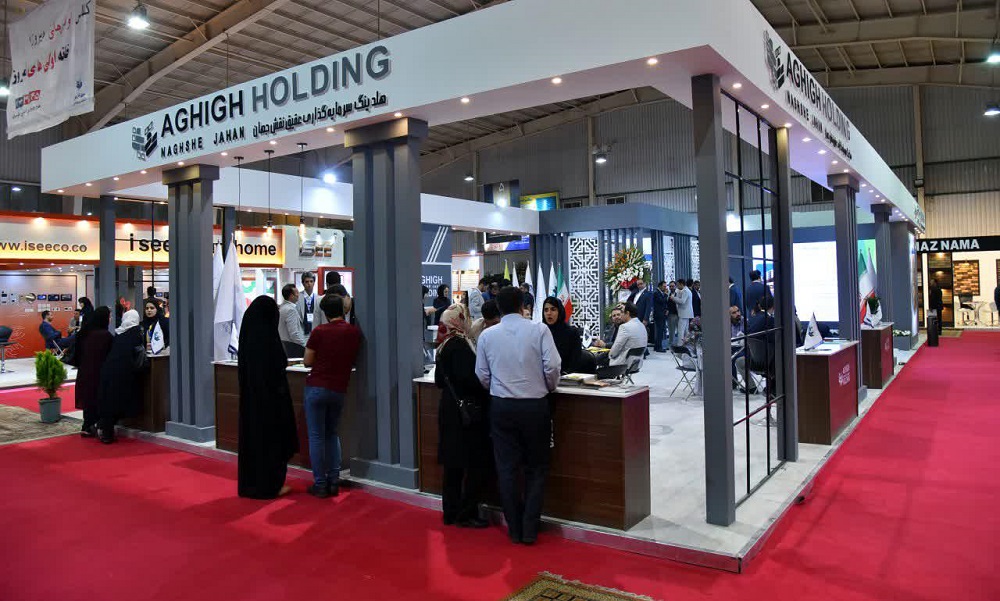
Iranian officials have announced that a 200-member delegation, comprising Afghan government officials and private sector representatives, will attend the 7th International Exhibition of Iran’s Export Capabilities.
Officials from the Islamic Emirate, meanwhile, consider the presence of Afghan traders at this exhibition to be significant, stating that showcasing domestic products will help promote and market Afghan goods.
Abdul Latif Nazari, Deputy Minister of Economy, said: “Economic cooperation between the private and public sectors of Afghanistan and Iran is in the interest of both countries.”
“The visit of the high-ranking delegation of the Islamic Emirate to Iran can play a vital role in expanding economic and trade exchanges between the two countries,” he added.
In addition, Afghanistan Chamber of Commerce and Investment (ACCI) said that 80 booths have been allocated to Afghan traders at the exhibition, where agricultural products, precious stones, and other Afghan goods will be showcased.
Several experts also stated that Afghanistan’s participation in regional and international exhibitions is important and can lead to stronger economic ties with other countries.
This comes as Iran remains one of Afghanistan’s key economic partners, with annual trade volume between the two nations exceeding $3 billion.
Latest News
14 kms of TAPI pipeline laid inside Afghanistan, says project manager
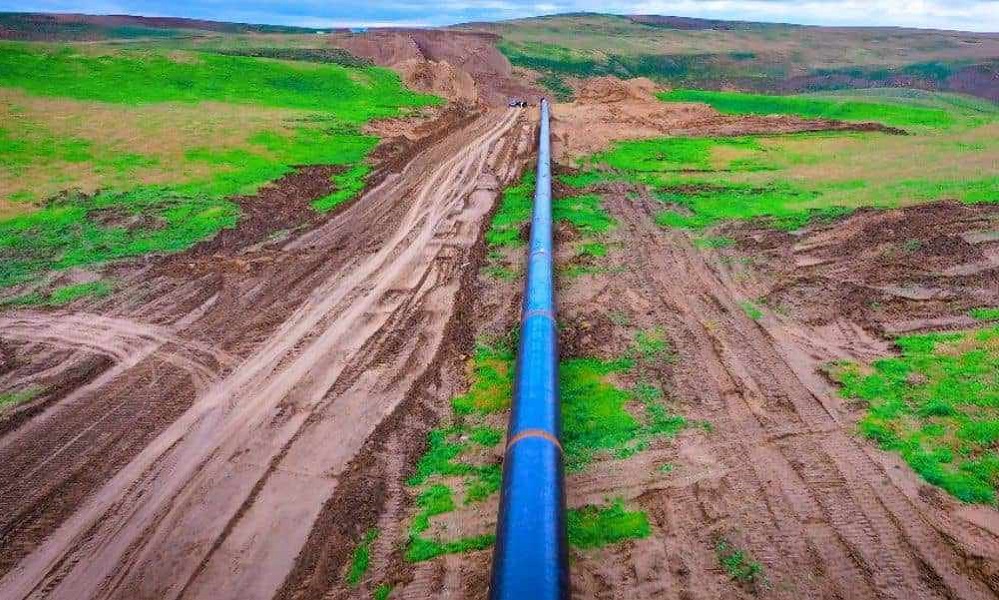
Baganch Abdullayev, the General Director of the TAPI project in Afghanistan, on Thursday met with Noor Ahmad Islamjar, the governor of Herat, for a report back on progress made in accelerating the pipeline-laying process of the Turkmenistan-Afghanistan-Pakistan-India project in the province.
The Herat governor’s press office said in a statement that Abdullayev shared a brief report on the progress of the TAPI project with Islamjar.
According to the statement, Abdullayev said so far 14 kms of pipeline has been laid while an additional 24 kms of ground has been levelled for the pipeline.
During the meeting, the governor of Herat also welcomed the efforts of TAPI project officials in advancing the work and assured the project head of the local administration’s full support in facilitating the swift progress of the project.
Once completed, TAPI pipeline will transport natural gas from the Galkynysh Gas Field in Turkmenistan through Afghanistan into Pakistan and then to India.
The pipeline was completed on the Turkmenistan side in 2024, and the project is currently expanding southbound in Herat Province of Afghanistan.
Latest News
WFP appeals for $25 million to help support Afghan returnees amid humanitarian crisis
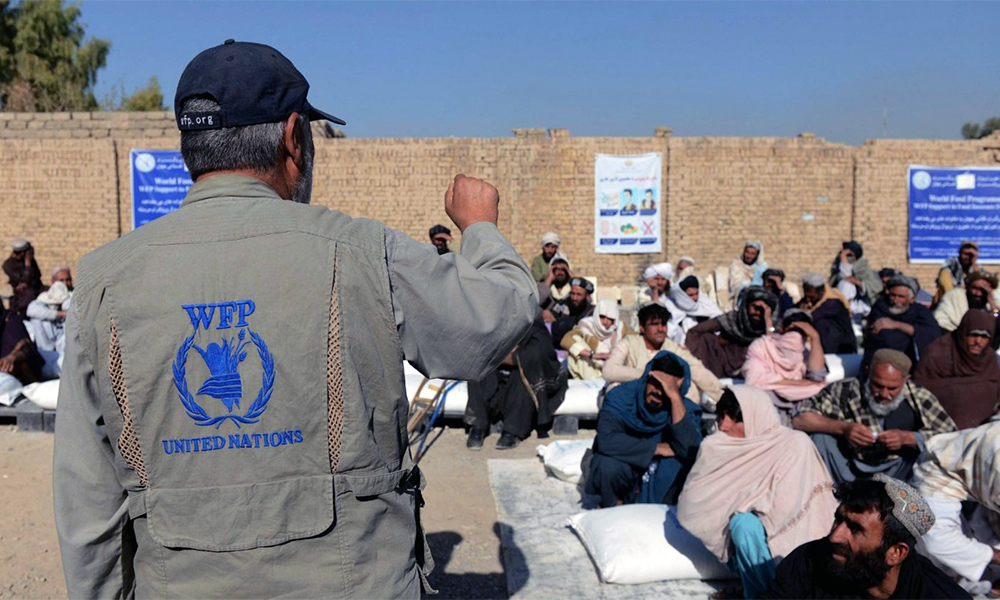
The World Food Programme (WFP) this week issued an urgent appeal for $25 million to address the escalating needs of Afghan refugees being expelled from Pakistan.
According to the WFP, thousands of Afghan families are crossing into Afghanistan from Pakistan every day and face serious food insecurity.
The organization also stated that millions in Afghanistan are grappling with severe hunger, and immediate aid of $25 million is needed to assist returnees.
On Wednesday, April 23, in a video shared on X, WFP’s head in Afghanistan, Mutinta Chimuka, visited the Torkham border crossing with Pakistan. During her visit, she highlighted the challenges faced by returnees, many of whom have spent their entire lives in Pakistan and are unfamiliar with Afghanistan.
Chimuka pointed out that many returnees have no income, employment, food, or shelter.
The WFP stressed that thousands of families are being forced to leave Pakistan, while 15 million people in Afghanistan are uncertain where their next meal will come from. The situation has become dire, with basic needs going unmet for a large portion of the population, the WFP said.
Chimuka warned that current aid efforts are insufficient to support the returnees, and new financial resources are urgently needed to address their needs by the end of the year.
Meanwhile, the pace of deportations and expulsions of Afghan migrants from neighboring countries, particularly Pakistan, continues to increase. The Pakistani Ministry of Interior reported that over 100,000 Afghan migrants have been returned since April 1.
The International Committee of the Red Cross (ICRC) has also raised alarm, noting that while thousands of refugees return every week, there are millions of Afghans who are currently facing poverty, homelessness, and difficult living conditions.
-

 World5 days ago
World5 days agoThousands of protesters rally against Trump across US
-

 Latest News4 days ago
Latest News4 days agoPolio vaccination campaign launched in Afghanistan
-

 International Sports2 days ago
International Sports2 days agoIPL 2025: Robo-Dog ‘Champak’ explained
-

 International Sports4 days ago
International Sports4 days agoIPL 2025: 14-year-old Vaibhav Suryavanshi becomes youngest IPL player
-

 Latest News3 days ago
Latest News3 days agoAriana Afghan Airlines increases flights to China
-

 Latest News3 days ago
Latest News3 days agoChina invites various Afghan delegations to attend Shanghai forums
-

 World3 days ago
World3 days agoPentagon chief Hegseth shared sensitive Yemen war plans in second Signal chat, source says
-
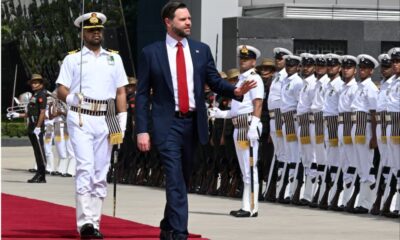
 Regional4 days ago
Regional4 days agoJD Vance arrives in India, to hold talks with Modi under US tariffs shadow
























